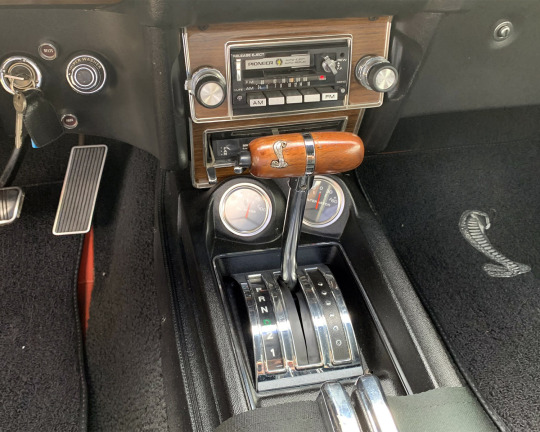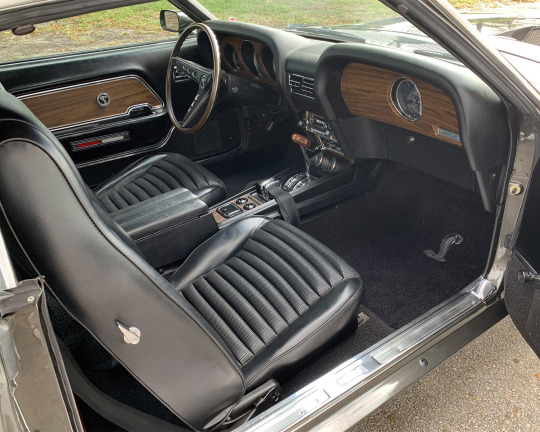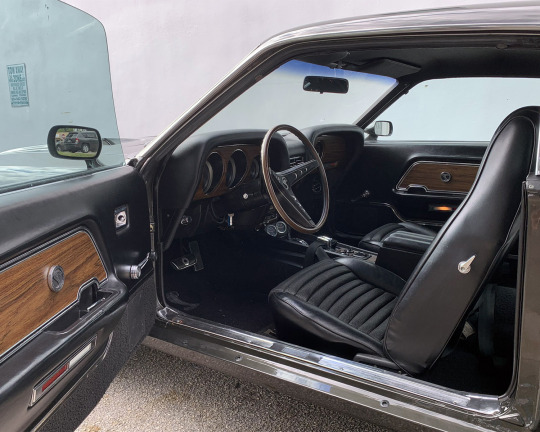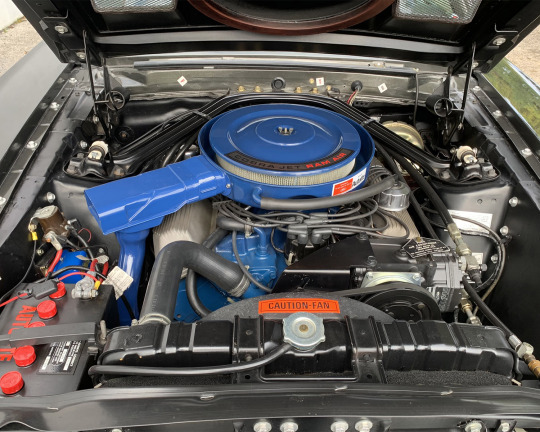#Torque Calibrator
Explore tagged Tumblr posts
Text
Achieving High-Precision Material Testing with Star EMBSYS Servo Tensile Testing Machines
In modern material science and quality assurance, precision testing is critical for ensuring product reliability, safety, and compliance. Tensile strength—the ability of a material to withstand pulling forces—is a fundamental property that influences product design across industries such as automotive, aerospace, construction, electronics, and packaging. A servo tensile testing machine is an essential tool for conducting such tests with high accuracy and repeatability. Among the leading providers in this domain, Star EMBSYS has earned a reputation for delivering advanced, durable, and efficient tensile testing systems that meet international standards and industrial demands.
Precision Engineering with Intelligent Servo Control
Star EMBSYS's servo tensile testing machines are built with high-end servo motors and closed-loop control systems that provide exceptional accuracy in force application and displacement measurement. These systems are ideal for testing a wide range of materials including metals, polymers, composites, textiles, and rubber. Whether for R&D or routine quality checks, Star EMBSYS machines offer controlled testing environments with programmable test parameters, user-defined speed settings, and automatic data logging.
Equipped with load cells of varying capacities, high-resolution extensometers, and digital controllers, Star EMBSYS machines provide accurate stress-strain curves and real-time feedback on material behavior under tensile loads. Their advanced software suite allows operators to analyze mechanical properties such as yield strength, ultimate tensile strength, elongation, and modulus of elasticity with ease. Results are displayed in graphical and tabular formats, enabling quick interpretation and reliable decision-making.
What truly differentiates Star EMBSYS is the seamless integration of mechanical precision with software intelligence—enabling automated test cycles, data export, and report generation to reduce human intervention and enhance efficiency.
Tailored Solutions with Industry-Focused Features
Understanding that different industries have varying testing requirements, Star EMBSYS offers custom-built servo tensile testing machines tailored to specific applications. From compact benchtop models for academic institutions to high-capacity floor-standing units for industrial testing labs, the company provides scalable solutions without compromising on performance.
Star EMBSYS machines support a wide range of grips and fixtures to accommodate samples of different shapes, sizes, and materials. This flexibility allows manufacturers and quality control labs to conduct a full range of tests, including tensile, compression, flexural, and peel tests. Moreover, the machines are designed with operator safety in mind, featuring protective enclosures, overload protection, and emergency stop systems.
In addition to manufacturing top-tier equipment, Star EMBSYS offers robust after-sales support, calibration services, operator training, and remote diagnostics. Their commitment to customer satisfaction and technical excellence makes them a preferred partner across sectors including automotive OEMs, aerospace manufacturers, research labs, and educational institutions.
Conclusion
In today’s competitive industrial landscape, investing in a servo tensile testing machine is crucial for maintaining material integrity and meeting quality standards. Star EMBSYS delivers state-of-the-art solutions that combine accuracy, flexibility, and reliability—backed by superior service and customization options. For businesses that prioritize precision testing and product performance, Star EMBSYS stands out as a trusted and forward-thinking provider in the tensile testing segment.
Visit:- https://www.starembsys.com/servo-tensile-testing-machine.html
0 notes
Text
Regular torque wrench calibration ensures accuracy, safety, and compliance. Prevent costly failures, extend tool lifespan, and improve efficiency with expert calibration services.
Get more information visit: https://scaleandmeasure.com/torque-wrench-calibration/
0 notes
Text
0 notes
Text
Precision and Compliance with Star EMBSYS Torque Wrench Calibration Machines
In high-precision industries where torque application is critical—such as automotive, aerospace, energy, and heavy engineering—torque wrenches must deliver consistent, accurate force to maintain performance and safety. Calibration of these tools is not just a regulatory requirement but also a foundational element of quality control. A torque wrench calibration machine ensures that torque tools remain within defined limits of performance. Leading the way in this niche segment is Star EMBSYS, a company known for delivering advanced, reliable, and cost-effective torque calibration solutions tailored to industry needs.
Engineered Accuracy and Intelligent Design
Star EMBSYS torque wrench calibration machines are built with precision engineering and embedded systems technology to offer unmatched accuracy, reliability, and repeatability. The machines are designed to test and calibrate both manual and digital torque wrenches across a wide torque range, ensuring compliance with international standards such as ISO 6789.
Each unit is equipped with a high-resolution digital display, torque sensors with low uncertainty, and data acquisition systems for real-time monitoring and analysis. The machines also feature automatic peak torque capture, programmable test parameters, and seamless integration with calibration software. These capabilities not only reduce the margin of error but also streamline the calibration process, saving time and labor.
Star EMBSYS’s calibration machines come with user-friendly controls and a robust mechanical build, ensuring consistent results even under repeated industrial use. This attention to both performance and durability ensures that clients receive a long-term, low-maintenance solution that fits seamlessly into their quality assurance workflows.
Trusted by Industry, Backed by Service
What sets Star EMBSYS apart in the calibration equipment space is not just the technical excellence of its machines, but also its commitment to customer-centric service and adaptability. The company provides custom-built torque calibration systems based on client specifications, whether it’s for high-capacity torque tools used in heavy machinery or low-range tools used in precision electronics.
Furthermore, Star EMBSYS supports its clients with comprehensive technical documentation, on-site training, and after-sales service, ensuring smooth implementation and long-term productivity. With a customer base that includes automotive OEMs, industrial tool manufacturers, and defense contractors, Star EMBSYS has established itself as a trusted calibration partner across India and internationally.
By investing in a torque wrench calibration machine from Star EMBSYS, businesses can safeguard operational accuracy, reduce tool-related defects, and meet stringent compliance standards with confidence. The result is a more reliable production process and greater customer satisfaction across the value chain.
Conclusion
In industries where the accuracy of torque tools can make the difference between safety and failure, a dependable calibration solution is essential. Star EMBSYS torque wrench calibration machines provide the precision, ease of use, and compliance required for modern manufacturing environments. For businesses aiming to elevate their quality assurance processes and maintain industry certifications, Star EMBSYS offers a proven, professional solution that ensures tools remain calibrated, accurate, and compliant.
Visit:- https://www.starembsys.com/torque-wrench-calibration-machine.html
0 notes
Text
The Connection Between Torque Wrench Calibration and Quality

In industries where precision and reliability are critical, the importance of torque wrench calibration cannot be overstated. Whether you work in manufacturing, automotive, aerospace, or construction, ensuring that torque wrenches deliver accurate readings is essential for maintaining the quality and safety of your products and operations. Torque wrench calibration services play a vital role in enhancing accuracy, consistency, and overall performance. Let’s explore how proper calibration directly impacts quality and why partnering with a trusted provider like Industrial Scale & Measurement is essential for achieving excellence in your work.
What is Torque Wrench Calibration?
Torque wrench calibration involves adjusting and verifying the accuracy of a torque wrench to ensure that it delivers the correct torque levels during use. Over time, torque wrenches can drift out of specification due to regular use, exposure to harsh conditions, and wear and tear. When this happens, the wrench may under-torque or over-torque fasteners, leading to product failures, safety hazards, and costly rework.
Professional torque wrench calibration services address this issue by testing the tool against known standards and making the necessary adjustments to restore accuracy. This process ensures that the torque wrench delivers consistent and reliable performance, helping to maintain the integrity of the products and systems where it is used.
Why Torque Wrench Calibration is Essential for Quality
Ensures Accurate Fastening
A miscalibrated torque wrench can lead to incorrect torque application, which can compromise the structural integrity of a product. Over-tightening can cause material fatigue or breakage, while under-tightening can lead to loose connections and product failure. Regular torque wrench calibration services ensure that fasteners are tightened to the correct specifications, enhancing the reliability and lifespan of the assembled products.
Prevents Costly Rework and Downtime
Inaccurate torque readings can result in improperly assembled products, leading to product failures, recalls, and customer dissatisfaction. The cost of rework and downtime can be significant, especially in industries with tight production schedules. By investing in reliable torque wrench calibration services, businesses can avoid these issues and maintain smooth, uninterrupted production processes.
Improves Safety and Compliance
Many industries, including automotive, aerospace, and construction, are governed by strict safety and quality standards. A miscalibrated torque wrench can lead to assembly failures that pose serious safety risks to workers and end-users. Regular calibration ensures that torque wrenches meet industry standards and comply with safety regulations, reducing the risk of accidents and liability issues.
Enhances Product Quality and Customer Satisfaction
Consistent and accurate torque application is essential for producing high-quality products. Customers expect products to meet performance and durability standards, and any failure due to improper torque can damage a company’s reputation. Torque wrench calibration services help manufacturers maintain consistent quality, leading to higher customer satisfaction and trust.
Extends the Life of Torque Wrenches
Torque wrenches are precision tools that require regular maintenance to function properly. Regular calibration not only ensures accuracy but also helps identify wear and damage early, allowing for timely repairs and adjustments. This proactive approach extends the life of the tools and reduces the need for costly replacements.
The Torque Wrench Calibration Process
Step 1: Inspection
The first step in the calibration process involves a thorough inspection of the torque wrench. Technicians check for physical damage, worn components, and any signs of malfunction.
Step 2: Testing and Adjustment
Next, the torque wrench is tested against certified standards using highly precise equipment. If the readings fall outside the acceptable range, adjustments are made to restore accuracy.
Step 3: Certification
After adjustment, the torque wrench undergoes a final test to confirm that it meets the required specifications. A calibration certificate is issued, documenting the tool’s accuracy and compliance with industry standards.
Step 4: Documentation and Tracking
All calibration data is documented, including the date of calibration, the tool’s performance, and any adjustments made. This information helps businesses maintain an accurate maintenance schedule and comply with regulatory requirements.
How Often Should Torque Wrenches Be Calibrated?
The frequency of torque wrench calibration depends on several factors, including usage frequency, environmental conditions, and manufacturer recommendations. High-use torque wrenches or those used in harsh environments should be calibrated more frequently. A general guideline is to calibrate torque wrenches every 5,000 cycles or once a year, whichever comes first. However, industries with strict quality standards may require more frequent calibration to ensure compliance.
If you're unsure about the ideal calibration schedule for your torque wrenches, you can find out more by consulting with a professional calibration provider. Industrial Scale & Measurement offers expert guidance and reliable torque wrench calibration services to help you maintain the highest levels of accuracy and performance.
Benefits of Professional Torque Wrench Calibration Services
Access to Specialized Equipment
Professional calibration providers use high-precision testing equipment and certified standards to ensure accurate calibration. This level of precision is difficult to achieve with in-house calibration.
Expertise and Experience
Certified technicians have the training and experience to identify and resolve calibration issues quickly and effectively. They understand the specific requirements of different industries and can tailor calibration services to meet those needs.
Compliance and Certification
Professional calibration services provide detailed documentation and certification, helping businesses meet industry standards and regulatory requirements. This documentation also serves as proof of compliance during audits and inspections.
Reduced Downtime
Professional calibration services are designed to minimize downtime and disruption. Many providers offer on-site calibration or quick turnaround times to keep your operations running smoothly.
Choosing the Right Torque Wrench Calibration Provider
When selecting a torque wrench calibration service, look for a provider with a strong reputation for accuracy, reliability, and customer service. Key factors to consider include:
Certification and accreditation
Experience with different types of torque wrenches
Fast turnaround times and flexible scheduling
Comprehensive documentation and compliance support
If you’re looking for a trusted provider, you could check here for expert torque wrench calibration services from Industrial Scale & Measurement. Our team of experienced technicians ensures that your tools are calibrated to the highest standards, helping you maintain product quality, safety, and compliance.
Why Industrial Scale & Measurement Stands Out
At Industrial Scale & Measurement, we understand the importance of accuracy and reliability in torque applications. Our torque wrench calibration services are designed to help businesses achieve consistent results and maintain the highest levels of quality. We use advanced equipment and certified standards to deliver precise calibration, ensuring that your torque wrenches perform flawlessly in demanding environments.
Find out why so many industries trust Industrial Scale & Measurement for their calibration needs. Get more information about our torque wrench calibration services and discover how we can help you improve product quality, reduce costs, and enhance operational efficiency.
Conclusion
Torque wrench calibration is not just a maintenance task—it’s a critical factor in ensuring product quality, safety, and reliability. Investing in professional torque wrench calibration services helps businesses maintain accurate torque application, prevent costly rework, and comply with industry standards. If you’re ready to enhance the performance and lifespan of your torque wrenches, check over here to learn more about Industrial Scale & Measurement’s expert calibration solutions.
Original Sources: https://industrialscalemeasurement.blogspot.com/2025/03/the-connection-between-torque-wrench.html
0 notes
Text
#Torque Qrench Testing#Torque Wrench#Calibrate Instrument#Calibrate Torque Wrenches#Calibration Professionals#Torque Equipment#Torque Wrench Calibration Services#Torque Wrenches
0 notes
Text
Enhancing Spring Quality Control with Star EMBSYS Spring Testing Machines
In today’s precision-driven manufacturing environment, the demand for reliable and accurate testing equipment has never been greater. Springs, being critical components in various mechanical assemblies, must undergo rigorous testing to ensure durability, flexibility, and performance under load. A spring testing machine is essential for evaluating these parameters. Among the notable names in this domain, Star EMBSYS has established itself as a trusted provider of high-quality, technologically advanced spring testing machines that cater to a wide range of industrial needs.
Advanced Technology for Accurate Spring Testing
Star EMBSYS spring testing machines are engineered to deliver precise measurements of compression, tension, and torsion in springs. With increasing demands from automotive, aerospace, electrical, and consumer goods industries, manufacturers need to ensure that every spring meets stringent performance standards. Star EMBSYS addresses this requirement through machines equipped with digital force indicators, load cells, and advanced software integration.
The machines allow for real-time data acquisition, digital calibration, and detailed performance analytics, all of which contribute to enhanced quality assurance processes. Their models offer programmable test cycles, auto peak hold functions, and adjustable testing speeds, making them suitable for both research labs and production floors. The use of microcontroller-based technology ensures consistent readings and minimal human error, reinforcing Star EMBSYS’s reputation for delivering accuracy and reliability.
Custom Solutions and Industry Applications
What sets Star EMBSYS apart is its ability to provide customized solutions tailored to specific industrial requirements. Whether it’s a standard compression spring for shock absorbers or a specialized torsion spring in aerospace assemblies, Star EMBSYS machines can be adapted to test various spring types and sizes. This level of flexibility is crucial for companies that manufacture springs in different configurations and strengths.
The versatility of their machines extends beyond technical features. Star EMBSYS also emphasizes user-friendly interfaces, intuitive controls, and robust after-sales support—components that contribute to operational efficiency and reduced training time. Additionally, their spring testing machines are built with durable materials, ensuring long-term use with minimal maintenance.
Industries that rely heavily on quality spring components—such as automotive OEMs, defense contractors, and electronics manufacturers—benefit immensely from integrating Star EMBSYS testing machines into their production and QA pipelines. By improving the repeatability and accuracy of tests, these businesses not only enhance product quality but also reduce operational costs caused by faulty components.
Conclusion
In a market where precision and performance are critical, Star EMBSYS spring testing machines stand out as an essential investment for manufacturers aiming to uphold product integrity and operational efficiency. Their commitment to innovation, customization, and support makes them a preferred partner for industries demanding the highest standards in spring testing. Businesses looking to streamline quality control and gain a competitive edge will find Star EMBSYS a reliable and forward-thinking ally.
Visit:- https://www.starembsys.com/spring-testing-machine.html
0 notes
Text
0 notes
Text
Torque Sensors: Precision Force Monitoring Powered by Star EMBSYS Technology
Torque sensors are essential tools in the measurement and control of rotational force in mechanical systems. From automotive testing and industrial automation to aerospace and robotics, torque sensors enable engineers to monitor performance, ensure safety, and improve efficiency. Star EMBSYS, a leader in embedded system innovation, offers advanced torque sensor solutions that combine mechanical precision with intelligent electronics for high-performance applications.
A torque sensor, also known as a torque transducer, measures the torque—or rotational force—applied to a shaft or axis. It can be used in both static (non-rotating) and dynamic (rotating) applications, making it highly versatile. Depending on the requirement, torque sensors can be based on strain gauge, magnetoelastic, or optical technologies. The electrical signal generated is proportional to the torque applied, which is then processed for display, control, or data logging.
Star EMBSYS leverages its deep expertise in embedded systems to develop smart torque sensor solutions that provide real-time, high-resolution measurements. Their sensors are integrated with embedded microcontrollers for advanced signal conditioning, filtering, and digital communication. This results in more stable, noise-free data and allows for seamless integration into modern control systems.
What sets Star EMBSYS apart is their ability to offer custom torque sensor systems tailored to specific industrial needs. Whether for a precision laboratory setup or a rugged field environment, Star EMBSYS provides sensors that include temperature compensation, overload protection, and customizable output ranges. The embedded software also supports features like zero-torque calibration, peak-hold modes, and fault diagnostics.
For industries working with rotating machinery—such as electric motors, pumps, or wind turbines—Star EMBSYS torque sensors offer both static and rotary variants. These sensors can output analog signals (0–5V, 4–20mA) or digital data via UART, CAN, or SPI, providing flexibility for integration with PLCs, DAQs, or cloud-connected IoT platforms.
Moreover, Star EMBSYS includes support for wireless telemetry in demanding applications, allowing real-time torque data transmission without slip rings or complex wiring—ideal for mobile machinery or test benches.
In summary, torque sensors play a vital role in the monitoring and control of mechanical systems. With its focus on smart design, embedded innovation, and application-specific customization, Star EMBSYS delivers high-performance torque sensor solutions that empower engineers and manufacturers to measure with confidence, accuracy, and efficiency.
Visit:- https://www.starembsys.com/torque-sensor.html
0 notes
Text
when engineers snap


— netflix starts filming the engineers… and finds out they’re even more dramatic than the drivers. a lead engineer has a vendetta against a torque wrench, and one refuses to speak to a driver after “brake map betrayal.”
all credits in my main masterlist!! <3

"we need fresh content," sarah from netflix had said in the production meeting. "something different."
nobody expected different to mean catching adrian newey in the red bull garage at 3 am, whispering sweet nothings to a wind tunnel model. he'd been suffering from sleepless nights recently due to his son keeping him up with his endless questions.
"you're the only one who understands computational fluid dynamics like i do," he murmured to the carbon fiber shape, sketching frantically on his legendary notebook. the netflix crew exchanged glances. this was either genius or madness. possibly both.
but the real drama was unfolding in the mercedes garage, where chief engineer andrew shovlin hadn't spoken directly to george russell in three weeks, not since what the team now referred to in hushed tones as "the brake map incident."
"could you please tell the driver in car 63," shovlin said to his assistant while george stood right there, "that his suggestion to modify the brake mapping was an insult to seven years of thermal optimization."
george, looking increasingly uncomfortable, tried to defend himself. "i just said maybe we could—"
"THERMAL. OPTIMIZATION." shovlin turned to face the wall, shoulders tense.
the netflix cameras zoomed in on the engineering desk, where a framed photo of the original brake map lay face-down, a small black ribbon attached to the corner.
meanwhile, in the ferrari garage, things were getting weird. chief race engineer riccardo adami had developed what could only be described as a blood feud with torque wrench #3.
"it betrayed me in singapore," he explained to the camera, eyes wild. "fifteen years of perfect calibration, and then? disaster. in front of everyone. carlos asked for 175 newton meters. one-seven-five! you know what this... this traditore gave us? one-seven-six!" he threw his hands up in disgust. "one-seven-six!"
behind him, carlos sainz patted the wrench sympathetically when adami wasn't looking.
the alpine garage wasn't much better. alan permane was conducting what appeared to be a full funeral service for a failed front wing design. engineers stood in solemn silence while someone played "the last post" on a kazoo.
"we had such hopes," permane whispered, a single tear rolling down his cheek. "such beautiful downforce predictions."
pierre gasly, walking past, crossed himself despite not being particularly religious.
but the real tension was at mclaren. head of vehicle performance andrea stella had started a support group for engineers traumatized by "aggressive setup suggestions." they met behind the garage, sharing horror stories over espresso and technical diagrams.
"and then," one engineer whispered, clutching his coffee cup, "he asked about changing the differential settings... mid-race!" collective gasps echoed through the group.
lando norris, trying to sneak past to get to his car, was spotted.
"you!" a suspension engineer pointed accusingly. "you and your 'just trying things' in free practice one! do you know how many simulations we ran?"
lando had never put his helmet on so quickly.
at aston martin, the situation had reached new levels of absurd. the head of strategy was giving fernando alonso the silent treatment after he'd questioned a tire choice. instead of speaking, she communicated exclusively through complex mathematical equations written on a whiteboard.
"i don't understand," fernando complained to the netflix crew. "i just said maybe hard tires weren't the best for a wet race!"
the strategist responded by aggressively solving a differential equation.
in the haas garage, things were getting metaphysical. ayao komatsu, the chief engineer, had started referring to the car's handling characteristics as "emotional states."
"the rear end isn't unstable," he explained seriously to kevin magnussen. "it's just processing some things right now. it needs space."
"from... the front wing?" kevin asked hesitantly.
"don't be insensitive."
but the pinnacle of engineering drama came during a late-night debrief at red bull. chief engineer paul monaghan was giving an impassioned speech about porpoising frequencies when he suddenly stopped mid-sentence, staring at his laptop in horror.
"who," he whispered, voice shaking, "changed the decimal point in row 1,263 of the setup sheet?"
the room went silent. in the corner, a junior engineer began quietly deleting his browser history.
"it was supposed to be 2.37659, not 2.37658!" paul's voice rose an octave. "do you know what this means? the rake angle calculations for the past three hours have been off by zero-point-zero-zero-zero-zero-one degrees!"
max verstappen, who had wandered in looking for his water bottle, slowly backed away.
as the sun set over the track, the netflix crew captured their final shot of the day: a group of engineers from different teams, huddled together in the paddock, sharing their deepest technical traumas over energy drinks and complicated graphs.
"sometimes," one whispered, "the drivers suggest things without consulting the computational analysis first."
collective shudders ran through the group.
in the distance, a torque wrench clattered to the ground. riccardo adami's scream of "traditore!" echoed through the paddock.
formula one would never be the same again.
#formula one#formula 1#formula one fanfic#f1#f1 2025#f1 fic#f1 fanfic#oracle red bull racing#alpine#rbr#mclaren#haas#kick sauber#aston martin#ferrari#williams racing#mercedes#racing bulls
24 notes
·
View notes
Text

1969 Shelby Mustang GT500 Fastback
1969 was, effectively, the final year for the Shelby Mustang. By now assembly had shifted in Michigan from California where it was contracted out to A.O. Smith Corporation. Smith, an established Motor City contractor, had brought a level of serious manufacturing skill, supplier management, procedure and standards never seen at Shelby’s facility where LAX met the vibrant (and sometimes extreme) subculture of Venice, California.
Now largely designed and specified by Ford staffers, the 1969 Shelby Mustang was drastically different visually from the standard Mustangs, with a completely different nose and grille, a wide rectangular opening with blacked out grille flanked by 7” headlights and with Shelby’s characteristic driving lights now smaller rectangular pieces below the attractive, but largely ineffective, bumper. The special Shelby hood had five ducts, three NACA-style surface ducts replaced the complicated but entertaining shaker hoods of years gone by to supply cold air directly to the engine air intake and two extractors at the back of the hood relieving underhood pressure and exhausting heated air in front of the windshield.
A surface duct behind the headlights and a scoop behind the door and in front of the rear wheel arch that was ducted to the rear brakes continued the performance theme. The rear panel was completely different from the Mustang, housing a set of 1965 Thunderbird sequential taillights with the rear license plate placed between them and including a small ducktail spoiler. The area under the bumper where standard Mustangs carried their license plate contained two rectangular outlets for the Shelby’s dual exhaust system. Standard wheels were unique 5-spoke Mag Stars with alloy centers and chrome steel rims.
Under the hood lay the 428 Cobra Jet which had powered the ’68 Shelby GT500KR. Both Ford and Shelby recognized the superiority of the high performance CJ and made it the standard engine for 1969’s Shelby Mustangs.
At the end of the 1969 model year 789 Shelby Mustangs were in-process at A.O. Smith. They were visually updated with black hood stripes and a chin spoiler and given new VINs. Otherwise the 1970s were exactly the same as the ‘69s making these two years essentially identical examples of the end of the Shelby Mustang series which had begun only a scant six years before.
Avidly sought by collectors and obsessively documented by the Shelby American Automobile Club, most Shelby Mustangs are well known and have well known histories. Occasionally, however, a example appears which has been out of sight for years. Even more rarely it turns out to have been little used and continuously maintained by a thoughtful and caring single owner for nearly forty years.
The Black Jade 1969 Shelby Mustang GT500 Sportsroof fastback offered here is one of those rare and highly desirable cars. It was delivered new to Ford’s dealer in Yokohama, Japan, Marubeni Motors K.K., and was sold thereafter to its first, and only, owner in Japan. It has been repainted in the original color once but is otherwise completely original, as delivered and has only 84,941km on its metric-calibrated export speedometer (52,779 miles.) Its sympathetic maintenance and care shows throughout in its clean, straight, rust-free condition.
Power of course comes from the 428 cubic inch Cobra Jet Ram Air V-8 engine which Ford and Shelby conservatively rated at 335 horsepower at 5,200rpm and a gut-wrenching 440 lb-ft torque at 3,400rpm. It puts the power through Ford’s highly regarded C-6 automatic transmission and Traction-Lok differential with high speed 3.00:1 gearing that takes full advantage of the CJ engine’s torque. In addition to the highly desirable drivetrain specification it is loaded with options including the Visibility Group, Goodyear white letter tires, Sport Deck folding rear seat, power front disc brakes, power steering, tilt steering column, Selectaire air conditioning, AM/8-track stereo radio, tinted glass, deluxe belts, tachometer and trip odometer.
It is finished in one of the Shelby Mustang’s most attractive colors, Black Jade. The interior and high back buckets seats are upholstered in black Clarion Knit/Corinthian vinyl that complements with Black Jade exterior.
It returned to the U.S. in 2006 but has never been titled by its current owner so it remains a one-owner car. Its absolutely clear history, one-owner provenance, highly original condition with known mileage and extensive options list are attributes shared by few Shelby Mustangs of this age. This is a rare opportunity for an astute collector to acquire a particularly significant, unmolested Shelby Mustang from the last, and most highly developed, series.

1969 Shelby Mustang GT500 Fastback
Powered by a 428ci V8 engine mated to a C6 automatic transmission, this beauty includes the original #Shelby owner card, a copy of the Shelby work order and Window Sticker.



1969 Shelby Mustang GT500 Fastback



1969 Shelby Mustang GT500 Fastback
#Shelby Mustang GT500 Fastback#Shelby Mustang GT500#Shelby Mustang#Mustang#Shelby#car#cars#muscle car#american muscle#ford
125 notes
·
View notes
Text
Rotary Torque Sensors: Enhancing Rotational Force Measurement with Star EMBSYS Solutions
Rotary torque sensors are critical components used to measure the rotational force (torque) applied on a rotating system, such as motors, gearboxes, or turbines. These sensors are essential in performance testing, quality control, and process monitoring across industries like automotive, aerospace, robotics, and manufacturing. Among the innovative providers in this space, Star EMBSYS offers high-performance, customizable rotary torque sensor systems that integrate advanced embedded technology for unmatched precision and reliability.
A rotary torque sensor measures torque by detecting the strain (twisting) on a rotating shaft. Typically based on strain gauge or magnetoelastic principles, these sensors output a signal proportional to the applied torque. Unlike static torque sensors, rotary torque sensors are designed to operate on rotating shafts, often using slip rings, wireless telemetry, or rotary transformers to transmit data.
Star EMBSYS brings its embedded systems expertise into torque sensing by offering intelligent rotary torque sensor solutions. These systems are equipped with real-time data acquisition, signal conditioning, and digital communication interfaces, making them ideal for dynamic and high-speed applications. Their sensors support both analog (voltage/current) and digital (UART, SPI, I2C, CAN) outputs, ensuring seamless integration with control systems, data loggers, and monitoring software.
One of the core strengths of Star EMBSYS is its ability to deliver customized sensor solutions tailored to the client’s mechanical and electrical requirements. Whether it's a high-precision lab-grade application or a rugged industrial setting, Star EMBSYS designs torque sensors with features like temperature compensation, vibration resistance, and long-term stability. Their embedded firmware ensures accurate real-time monitoring with minimal latency, critical for applications like EV motor testing or robotic joint torque feedback.
Additionally, Star EMBSYS offers user-friendly calibration and diagnostic tools, allowing engineers to maintain accuracy and system health over time. Their rotary torque sensors can be combined with wireless telemetry for remote monitoring, a vital feature for testing in mobile or rotating systems where cabling is impractical.
In conclusion, rotary torque sensors are essential for understanding and optimizing mechanical performance. Star EMBSYS stands out by delivering not just sensors, but smart embedded torque measurement solutions that empower engineers with real-time, high-fidelity data. With a commitment to innovation and customization, Star EMBSYS is a trusted partner for precision torque sensing in today’s demanding engineering applications.
Visit:- https://www.starembsys.com/rotary-torque-sensor.html
0 notes